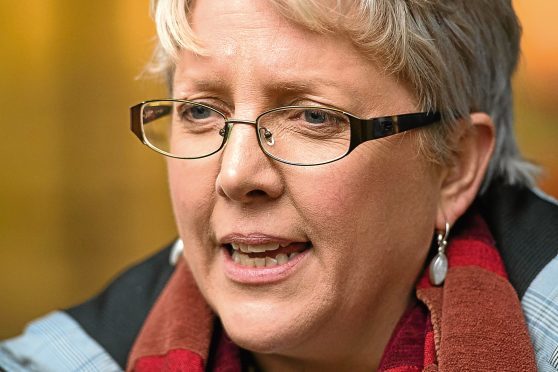When the BBC was forced last summer to reveal the pay details of employees earning more than £150,000 there was widespread outrage.
This quickly became less about what the top stars were making (Gary Lineker on nearly £2 million, for instance) and more about the inexplicable disparity between male and female staff.
Of the 96 people named in the list – published in July – only 34 were women and most of these were in the lower salary levels. Many of the BBC’s big-name female presenters – such as Sarah Montague of Radio 4’sToday show, Emily Maitlis of Newsnight and Jenni Murray of Women’s Hour – didn’t make the list at all because they earn under £150,000.
Another highly-rated female journalist who falls into this category has now become the new standard bearer for gender equality, not just at the BBC but throughout the land.
Carrie Gracie – employed by the organisation for three decades – resigned over the weekend from her post as the BBC’s China editor. In an open letter, addressed to licence fee payers, she explained her reasons. Most notably, she said she was not necessarily seeking more money, as she felt she was relatively well paid, but she did want to receive the same package as her male counterparts.
Ms Gracie took on the China job four years ago with assurances from her managers that it was on equal terms with her fellow international editors, two men and one woman. Only when the BBC came under pressure to reveal the truth about its uneven pay scales did Ms Gracie realise she had been lied to. John Sopel, the US editor, and Jeremy Bowen, the Beeb’s man in the Middle East, apparently earned at least 50 per cent more than the two women (the other one being Katya Adler, the Europe expert).
Ms Gracie has tried since to rectify the discrepancy through the corporation’s grievance process but now has had enough. She continues to work for the BBC and was on the air on Monday morning in her capacity as an occasional presenter on the Today show.
The support she has received from angry colleagues – and not just the women – is heartening but this alone will not make the BBC correct its contravention of the 2010 Equality Act.
If the taxpayer-funded body had any intention of ending the culture of secrecy around its wage bands and addressing the issue of its discrimination it would have done so following the outcry last July.
As Ms Gracie pointed out, men earning more in the same jobs, or jobs of equal value, is illegal – and yet an employer of the BBC’s standing has been able to get away with such practices for years through a policy of concealment.
That has to end. Those of us who work in the newspaper industry inherited a precedent of equal pay that had traditionally been agreed between the press unions and proprietors. With the demise of the closed shop, the system survived, more or less, and reporters and sub-editors were paid the going rate, regardless of gender.
In the Civil Service, too, positions are aligned to pay so the opportunity to exploit female workers does not arise.
And even Wimbledon, long accused of discrimination for paying men more, caved in eventually. In 2007 it became the last of the major tennis tournaments to award equal prize money to male and female players.
If tennis, with the clear differences in the men’s and women’s games, can accommodate equality, the BBC, where gender plays no part whatsoever in professional roles, has no excuse.
Ms Gracie has rightly provoked a storm. Now, she suggests, her bosses must “admit the problem, apologise and set in place an equal, fair and transparent pay structure” with independent arbitration to settle individual cases.
As a public body, the BBC has been publicly shamed. It can only begin to rebuild its self-proclaimed reputation for fairness by putting its house in order and setting an example to other, even more opaque, companies and institutions.
The broadcaster has nowhere left to hide this time; we will all be watching.
